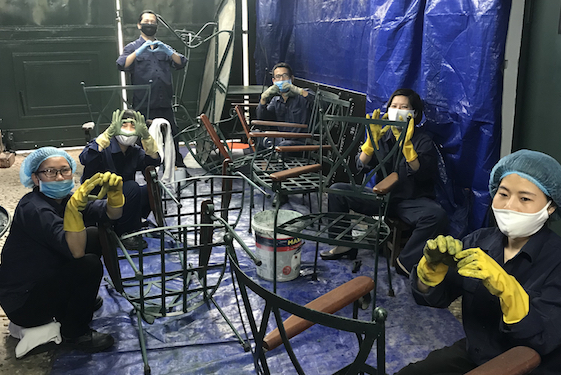Instead of serving spring rolls or arranging tours, staff at Sofitel Legend Metropole Hanoi are cleaning carpets and repairing rooms. Workers at Marco Polo Hongkong Hotel have been shifted to projects like cleaning up local trails or researching, testing and producing vitally needed medical masks. At Ovolo’s Australian properties, management is training employees for other roles or helping them find jobs in other industries.
These are a few examples of how hotels are managing staff and striving to repurpose not only properties but workers amid the fast-spreading coronavirus crisis.
Hotels are working overtime to protect the safety of guests, along with the well-being of workers, all while revenue rapidly evaporates. While they share the same challenges, some hotels are responding with remarkable resilience and innovation.

Contributed by Ron Gluckman
Occupancy has plummeted across Asia, most notably in Southeast Asia, which has grown increasingly dependent on Chinese tourists, comprising about 20% of all international visitors in 2019.
Thailand, where Chinese account for 28% of visitors, saw tourism plunge 44% in February over the previous year, while the drop in Vietnam was 22%. The numbers have gotten worse since then, as both countries have curtailed air service and are effectively locked down.
With tourists gone, some hotels have moved forward repairs and renovations, as in the off-season. Governments are considering mobilizing underused hotels for shelters for homeless and those stranded by travel restrictions, or as temporary hospitals for the rapidly-growing numbers of the afflicted. In the Maldives, Tourism Minister Ali Waheed announced in late March a radical strategy to repurpose 10 luxury island properties as quarantine centers, after the first dozen cases of COVID-19 were confirmed in the remote island destination.
Thailand – the first country to report coronavirus cases outside of China – is considering converting some hotels in the Bangkok area into hospitals, should coronavirus cases, approaching 1,000 in March, threaten to overwhelm existing medical facilities. Bangkok has about 1,600 beds at hospitals and medical schools, according to Deputy Public Health Minister Sathit Pitutecha. Hotel owners in Korat, part of the northern farm country, have also offered properties that could be quickly converted to hospital use.
In Australia, where hotels are open but bars and restaurants closed, hoteliers are struggling to meet the needs of guests and staff.
“We’re doing everything in our power to look after our staff,” says Stephen Howard, group director of marketing for Ovolo Hotels, which has several properties in Australia. Staff have been redeployed where possible to new roles within the properties, he says, and Ovolo has helped place workers in industries such as supermarkets and call centers that are hiring.
At the Metropole in Hanoi, the decision was made to prioritize workers from the bottom up, according to Anthony Slewka, sales and marketing director. Senior and mid-level staff took some reductions, working half-month schedules in some cases, as the majority of 640 workers were shifted to other tasks. “These include sanding and re-doing floors, deep cleaning rooms and public areas, painting, repairing furniture, improving back of house areas,” he says.
In Hong Kong, Jennifer Cronin, president of Wharf Hotels, says the priority is not only protecting jobs but productivity and morale. “We are focusing on employee retention activities, including redeployment, internal projects, learning and development, as well as CSR initiatives to support the community,” she says.
Already, staff have been trained to take up new tasks, in work as varied as engineering. And the company has stepped up community activity, most commendably producing 1,200 reusable masks amid the shortage brought on by COVID-19.
